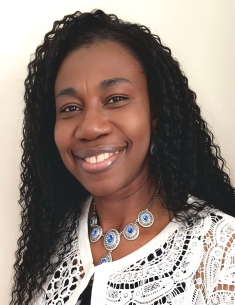
Fulbright Scholar Dr. Folasade Olajuyigbe, Senior Lecturer in the Department of Biochemistry at the Fedural University of Technology in Akure, Nigera, visited the lab of Dr. Max Häggblom in the Department of Biochemistry and Microbiology at Rutgers University from October 2017 to July 2018.
The Women's Dignity Initiative Inc. (WDII) has given scholarships to 6 indigent female students from rural communities in Ondo State.
The WDII is a Non-Governmental Organization, NGO founded by Dr. Mrs. Folasade Olajuyigbe, of the Department of Biochemistry, Federal University of Technology, Akure [FUTA].
WDII provides scholarships to financially challenged but gifted and promising girls in Science, Technology, Engineering and Mathematics [STEM] in remote villages in Nigeria, empowering them through mentorship, training and participation in scientific conferences.
The scholarship, made up of Tuition Fee, science Textbooks, Mathematical sets and school bags, was presented in an award ceremony and the official presentation of WDII at the Theodore Idibiye Francis Auditorium, Federal University of Technology, Akure.
Speaking at the occasion, Dr. Olajuyigbe, a Fulbright Scholar and Schlumberger Faculty for the future fellow disclosed that the awardees were successful candidates from selected remote villages in Ondo State who participated in an examination organized by WDII.
She said eighteen schools were contacted to nominate their two best girls in mathematics and 6 candidates emerged winners of the scholarship examination held on the 4th of August, 2018.
Speaking on the vision behind the initiative, Olajuyigbe said "the challenges of living in rural areas are numerous. Few who attend schools have secondary school as their ultimate. Girls in these areas are from very humble backgrounds and are prone to early marriages, teenage pregnancy, cultural and religious misinterpretation and sexually transmitted diseases; this cycle continues from one generation to another."
She said the aim is to build girls who are conscious of their potentials, who have self-esteem and are self-confident.